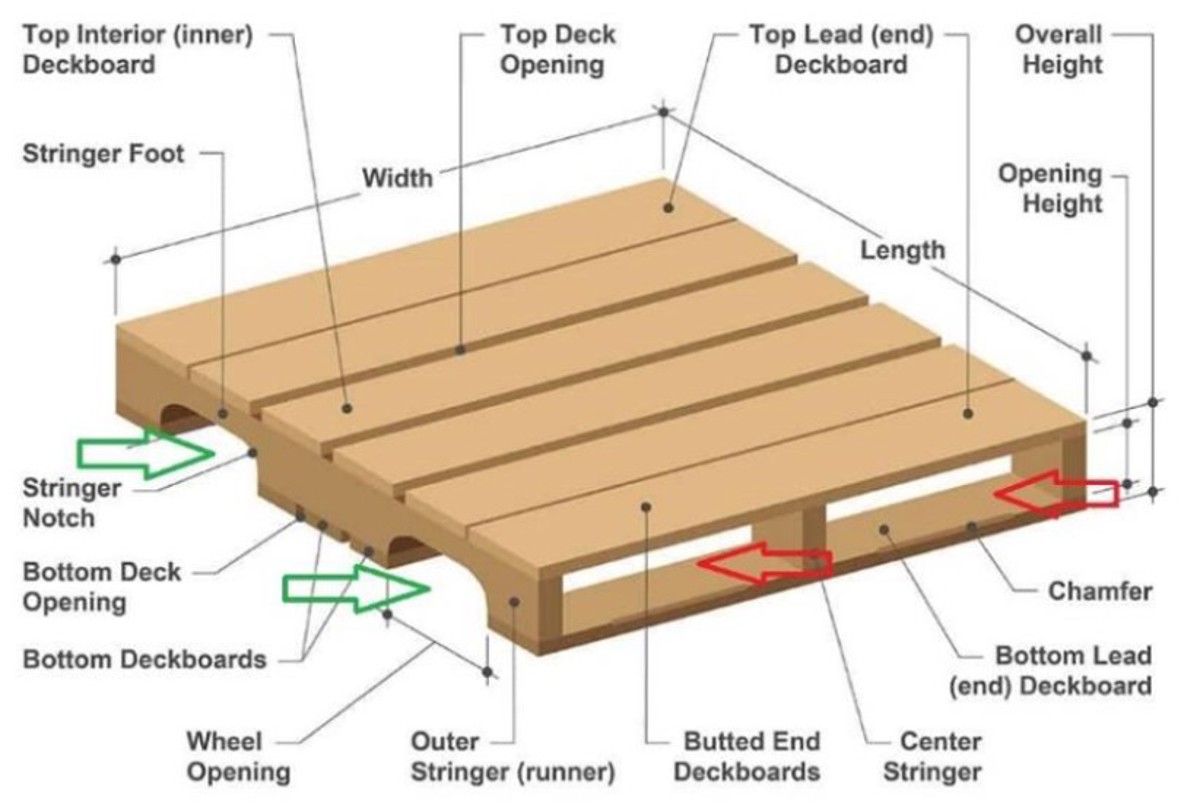MSF: Unsafe Cargo Transfer Using Pallets
- Safety Flash
- Published on 1 April 2022
- Generated on 21 February 2026
- IMCA SF 08/22
- 2 minute read
Jump to:
The Marine Safety Forum (MSF) reports in Safety Alert 22-06 that an MSF member reported two separate incidents during deck cargo transfer operations involving pallets.
What happened?
Incident #1: Lifting strops were passed through the side of the pallet (See red arrows in diagram) allowing the tension to be placed on the deck boards. The load weighing approximately 150kg was centred on the pallet. The stress on the deck boards allowed them to separate from the pallet eventually failing and allowing the load to fall to the deck.
Incident #2: Loose items were placed on a pallet which was to be loaded onboard. During the lift, the pallet came
in contact with slings attached to a gangway stowed in the immediate area. The contact caused the pallet to shift
allowing a box of copy paper to fall off and fall to deck. Fortunately, there was no-one in the immediate vicinity when the box landed.
What went wrong?
The MSF notes that both incidents were different in nature but did have some similar attributes:
- Task Planning, Risk Assessment and Toolbox Talk did not identify specific hazards associated with the operation.
- There was complacency – a failure to recognize a hazardous situation developing.

Lessons
- Pallets have no safe working load (SWL) and have the potential for shifting if the load is not evenly distributed, or if external forces are present during the lifting operation.
- All items being lifted, whether on pallets or otherwise, should be properly secured.
Related Safety Flashes
-
IMCA SF 23/16
13 September 2016
-
IMCA SF 05/20
13 February 2020
-
-
IMCA SF 17/19
16 July 2019
-
-
IMCA SF 17/19
16 July 2019
-
IMCA Safety Flashes summarise key safety matters and incidents, allowing lessons to be more easily learnt for the benefit of the entire offshore industry.
The effectiveness of the IMCA Safety Flash system depends on the industry sharing information and so avoiding repeat incidents. Incidents are classified according to IOGP's Life Saving Rules.
All information is anonymised or sanitised, as appropriate, and warnings for graphic content included where possible.
IMCA makes every effort to ensure both the accuracy and reliability of the information shared, but is not be liable for any guidance and/or recommendation and/or statement herein contained.
The information contained in this document does not fulfil or replace any individual's or Member's legal, regulatory or other duties or obligations in respect of their operations. Individuals and Members remain solely responsible for the safe, lawful and proper conduct of their operations.
Share your safety incidents with IMCA online. Sign-up to receive Safety Flashes straight to your email.